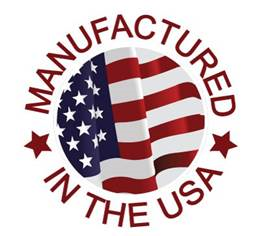New Products From Local Copper Company To Fight Deadly Infections
November 2013
In 1848, Dr. Curtis Hussey of Pittsburgh discovered patients who were exposed to copper materials were more likely to recover and survive after a procedure. Dr. Hussey soon built a massive copper enterprise on the banks of the Monongahela River.
 |
| Company CEO Joe Mallak explains recent upgrades to the copper smelter, in background. |
After 170 years of success, however, Hussey Copper fell on hard times. Despite robust demand for copper products, the former plant owners neglected the facility, but in 2011 new leadership took over and invested millions in the plant, restoring the Leetsdale facility to its past glory. Today, employing more than 350 workers, Hussey Copper is still growing and looking to enter new product markets applying the antibacterial properties of copper.
Clinical research shows bacteria like MRSA dies within minutes when exposed to a copper surface but will survive for days or weeks on plastic and other materials. Since 80 percent of infectious diseases are transferred by touch, expanded use of copper could dramatically reduce the spread of hospital-acquired infections (HAIs), which are estimated to cause 100,000 deaths and cost the nation’s healthcare system $45 billion annually.
On Wednesday, company officials gave a tour and briefing to Congressman Murphy, who authored the Healthy Hospitals Act, which would require public reporting of healthcare-associated infections so the public could review, compare, and ultimately bring the market to bear on reducing infections and costs. Due in part to Rep. Murphy’s legislative work, Medicare and Medicaid will no longer reward hospitals financially for treating infections patients acquired during their hospital stay.
Hussey has been installing fixtures in hospital intensive care units and patient rooms to help stop the spread of infection. However, the company has had to deal with burdensome regulations at the Environmental Protection Agency.
 |
| Finished rolls of copper, recycled from scrap. |
Hussey Copper also plans to sell its products in the consumer market beginning in 2014. Because it can melt scrap, process copper into sheet and other forms, and fabricate final parts all as one company, Hussey hopes to leverage its low-cost integrated model against competitors that must buy copper from other copper smelters.






